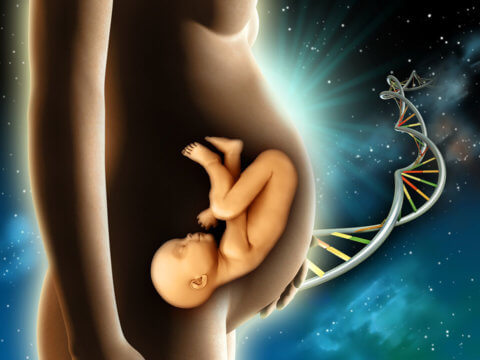Wondering why identical twins aren’t actually completely identical? The answer is Epigenetics! These days epigenetics is one of the hottest subjects in the sciences.

But just what is epigenetics?
If you consider a DNA sequence as the text of an instruction manual that explains how to make a human body, epigenetics is like a highlighted mark-up of the text with different colors or fonts in order to direct the reader’s attention to different parts of the text. Take, for example, protein synthesis, which is directed by DNA. There are different types of epigenetic marks that instruct different proteins in the cell to process those parts of the DNA in different ways. Some of them enhance the protein production and some suppress, without changing the DNA itself. Therefore, epigenetics is responsible for changes in phenotype (the outcome of the genetic code) without the need for any change in genotype (the substance of the genetic code).
Take the Next Step – Schedule an Appointment
Do epigenetics mark you for life?
The interesting thing about epigenetics is that, unlike the DNA sequence, those epigenetic marks are not permanent. Some of them can change throughout life in response to environmental stimuli, and any outside stimulus that can be detected by the body has the potential to cause epigenetic modifications. For example, Bisphenol A (BPA) is an additive in some plastics that has been linked to cancer. BPA seems to exert its effects through a number of mechanisms, including epigenetic mechanisms. The effect of epigenetics is not always harmful. Exercise is an example of a beneficial epigenetic effect on our health. 
Is it hereditary?
Epigenetic changes can be transmitted to the offspring because they become incorporated into germ cells (eggs and sperm). Several environmental and lifestyle factors (stress, physical activity, alcohol intake and smoking) are known to affect both male and female fertility through alterations of epigenetic factors.
Epigenetic changes involving germ cells may affect embryo development as well. For example, children of obese parents have alterations in the epigenetic markers at multiple regions of DNA, suggesting a preconception influence of parental lifestyle and nutrition on the programming of these marks during gametogenesis.
How we look and feel is a proof that our lifestyle choices affect our epigenetics. Therefore, think of epigenetics as ambassadors of health. Be kind to your body; your epigenetic ambassadors are listening!
For more fertility tips, continue to check in with the GENESIS Fertility Blog.
Original post March 28, 2018
Updated November 3, 2022
If you would like to learn more about GENESIS Fertility New York or are ready to schedule an appointment, please speak with one of our representatives at 929-605-5467.





